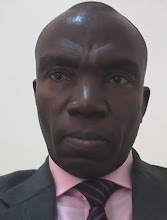Media Associations Should Promote Local Think Tanking
-
Journalists organized in regional press clubs can go beyond playing a fire brigade role. Besides the traditional roles of covering events, crises, disasters and conflicts, practicing journalists in Uganda are playing a more watch dog role of promoting Transparency, Accountability and rule of law as corner stones of good governance.
One major sensitive area is the Public procurement and disposal of public goods, services and works. They are also setting the agenda on topical issues that impact on people’s lives by involving a wider public to participate in the debate, and monitoring the allocation and use of resources.
Members of Ten press regional clubs scattered around the country have realized through research and documentation that procedures in procurement and disposal of public goods and services impact on creation of a sound business environment in the country, promote efficiency and transparency. Before 1994 decentralization reforms, procurement of public goods and services was based on a centralized “system with central tender board" under the Ministry of Finance being in pole position. With de-concentration of powers and increase in government entities, it became inevitable that even the procurement role be decentralized thereby empowering lower entities to plan and execute their own programs.
In the case of Uganda, district tender boards were created but mostly comprised political appointees as members. Elected political bosses took advantage of this to reward their cronies and supporters with such positions to the statutory bodies and commission, contrary to laid down procedures. Such committees were not intent on choosing proven integrity and best practices in terms of the right source, quality, prices, quantity and time. They encouraged air supply, shoddy work and overpricing of goods and services among other evils. Besides, politicians competed with and had an unfair edge over the ordinary business people. Following the outcry over related evils, the government made reforms in 2003 to replace the tender boards made of politicians with contracts committees made of civil servants/technocrats. The committees evaluate bids, procurement methods, documents and amendments to contracts. They are also supposed to ensure compliance with the laid down regulations.
While accounting officers and technical personnel ensure availability of funds and execution of the contracts, press clubs have resolved to closely monitor compliance with terms of reference, right from advertising the tenders and contracts, execution of the contracts/works, the quality and quantity of goods and services supplied and compliance with the specified time of contracts. The common area of suspicion is routine roads maintenance. Some politicians form companies with quasi partners and virtually do no work on the sections allocated to them but the engineers will purport to have inspected the sections and certify as satisfactory work done thereby recommending payments. Alternatively, connivance is made with storekeepers to indicate in the stock books that quantities and qualities recommended in the contracts of goods have been supplied and delivered thus suppliers ready for payments. Legal experts are also paid hefty sums of retainer fees for advisory for contracts that more often than not backfire leading to compensations arising out of breaches. Through organizing and conducting public- media dialogues, the stake holders are brought together with public servants to brainstorm and point out the weaknesses and strengths in adherence to procedures. Radio talk shows are organized to stimulate debate from the public about how they view works executed and services provided in their respective areas. A website for press clubs and their activities is being designed whereby a number of analytical articles pointing out shoddy works and commending best practices highlighting success stories will be accommodated. In playing such a watch dog role, journalists meet a number of challenges especially to do with the ownership of the media houses. While it is true that over 120 FM radio stations have been licensed and newspapers are mushrooming, several journalists, editors and presenters have to tow the line of the owners. Journalists fear to point out failures of the local governments where they are located for fear of being at loggerheads with potential advertisers, let alone losing their jobs. As if this is not limiting enough, business matters or economic news rarely find space or air time on prominent pages or programs. They are relegated to the inside pages or announced at odd times of the day with unpredictable audience.
Press clubs in collaboration with development partners ought to start their own community radio stations (media houses), newsletters and online magazines among others to enable them freely contribute well researched topical issues with a view to influencing policy and decisions that favor a fair business environment.By Jossy Muhangi Journalist - Uganda
article published by the African Executive in September 2007
Wednesday, April 1, 2009
Subscribe to:
Post Comments (Atom)

No comments:
Post a Comment